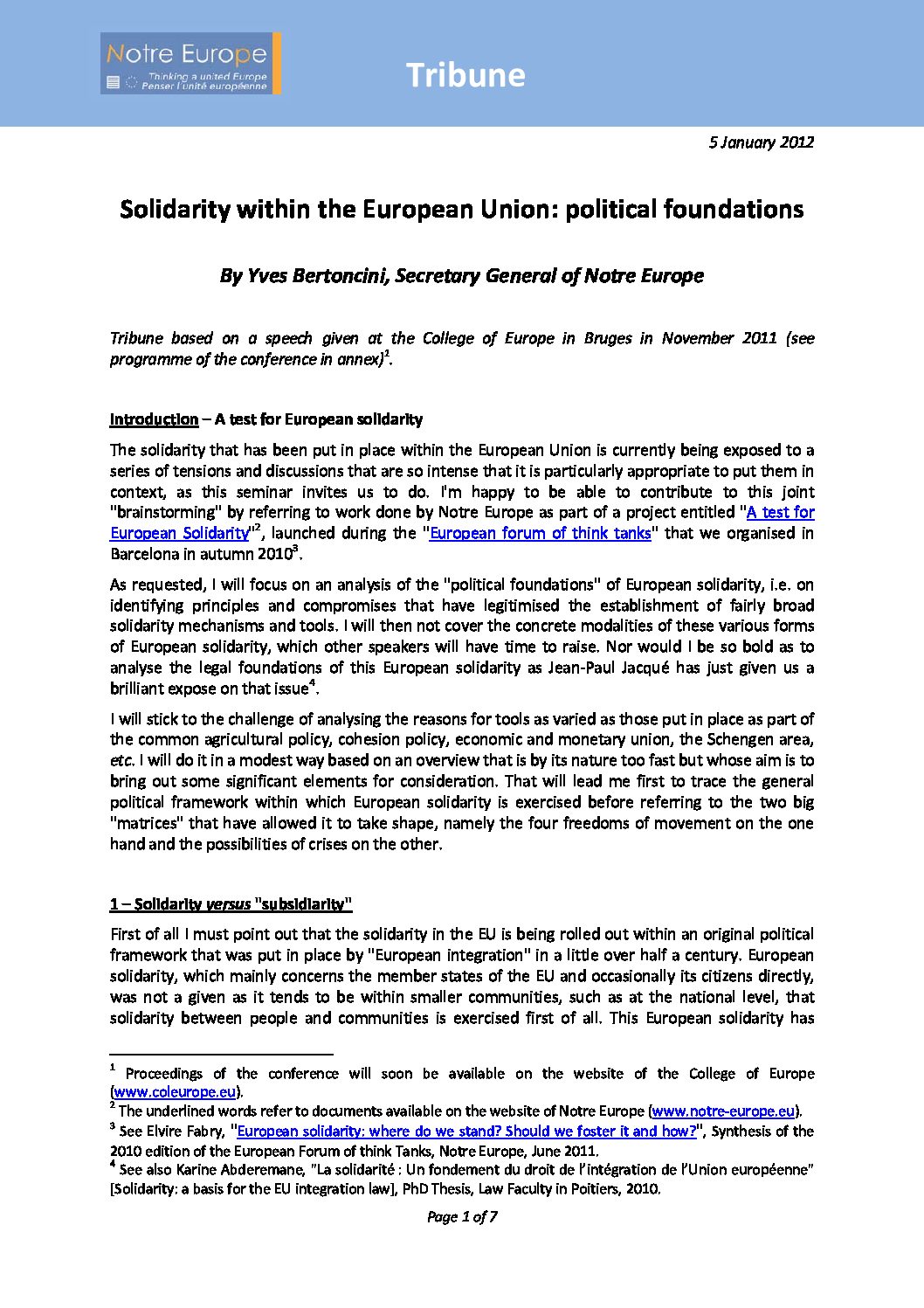Economy / Euro / Budget | Europe & the world | Life & future of the EU | Mobility / Schengen | Powers of the EU | Publications
Solidarity within the European Union: political foundations
 Download pdf
Download pdf
Whilst solidarity between European member states is being exposed to a series of tensions, on the basis of a speech at the College of Europe in Bruges, I analyse the political foundations of the main solidarity mechanisms established by the EU.
My tribune leads to put into perspective several important European debates of the year 2012 (support plans to the eurozone, revision of the Community budget, management of the Schengen area, etc.). Three main lessons are to be drawn:
1. Solidarity within the EU is being rolled out within a rather limitative political and legal framework (Federation of nation states, subsidiarity principle, etc.).
2. It is the establishment of a “common” and then “single” market which has provided “structural” political foundations to the solidarity established within the EU (CAP, cohesion policy or even support to certain workers).
3. Other political but more “cyclical” foundations lead European solidarity to be triggered in a situation of crises, on the basis of more or less ancient and more or less sophisticated mechanisms (Schengen area, eurozone, solidarity clauses of a diverse nature).
This tribune is part of a project entitled “A test for European solidarity” launched by Notre Europe at the end of 2010 during the European forum of think-tanks”.